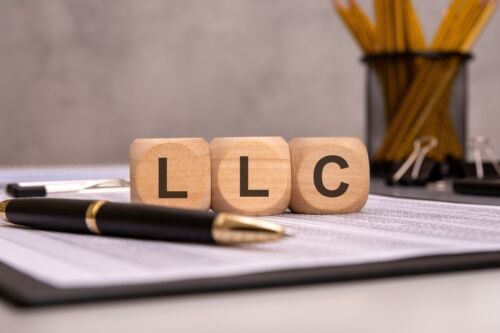Understanding LLC Asset Protection Benefits

A Limited Liability Company (LLC) can offer several key asset protection benefits. Significantly, this business structure can shield the personal assets of an owner from the company’s debts and lawsuits. In other words, if a business is sued, creditors can only go after the company’s assets — not those of the LLC members. However, it's important to understand both the strengths and limitations of using an LLC for asset protection.
How an LLC Protects Assets
One of the primary ways an LLC provides protection is by separating personal and business assets. An LLC is a separate legal entity. This means that if the business incurs debts or is sued, the owners (also referred to as “members”) are generally not personally liable. Their personal assets, such as homes, cars, and personal bank accounts, are protected.
In addition, if a liability arises from within the LLC, only the assets inside that specific LLC are at risk. Other personal or business assets outside the LLC are shielded. An example of this is if a tenant sues over an injury on a rental property owned by the LLC — only the LLC’s assets can be pursued to satisfy a judgment in a personal injury case.
Critically, LLCs act like “egg cartons. Each asset is isolated from the others. For example, if you own multiple rental properties, placing each in a separate LLC can prevent a lawsuit involving one property from affecting the others.
LLCs can also offer protection from charging orders. In many states, if a member is personally sued, creditors can only receive a “charging order” against the member’s interest in the LLC. This limits the creditor’s ability to control or liquidate the LLC’s assets.
Limitations of LLC Asset Protection
While there are many advantages to setting up an LLC for asset protection, there are certain limitations. These limitations include the following:
- Outside liability exposure — If the LLC owner is personally sued (e.g., for a car accident or personal debt), their ownership interest in the LLC can be targeted by creditors. The LLC protects from “inside-out” liability, but not “outside-in”.
- Piercing the corporate veil — If the LLC is not properly maintained, such as by mixing personal and business finances or failing to follow formalities, a court may hold the owner personally liable under the “alter ego” doctrine.
- Personal guarantees and misconduct — Owners can still be held liable for debts they personally guarantee, unpaid payroll taxes, and personal wrongdoing or negligence.
Best Practices for Stronger Protection
Even if you set up an LLC, it’s essential to consider implementing additional strategies to shield your assets. Some practices that should be considered for additional protection can include the following:
- Maintaining LLC formalities — It’s crucial to maintain LLC formalities by keeping separate bank accounts, records, and contracts.
- Using multiple LLCs — Especially for high-risk or high-value assets.
- Obtaining liability insurance — Liability insurance can help to cover gaps in LLC protection.
- Considering asset protection trusts — For full protection, especially against personal lawsuits, consider setting up an asset protection trust.
It’s best to work with an experienced business attorney who can best advise you regarding the strategies to implement in your specific case.
Contact an Experienced Michigan Business Attorney
If you own a business, it’s vital to understand the limitations of LLCs when it comes to shielding your assets — and implement strategies for comprehensive protection. With office locations in East Lansing, Mt. Pleasant, Grand Rapids, and Detroit, The Gallagher Law Firm assists business owners with a wide range of legal matters, including those involving business formation and asset protection. To learn more about how we can assist you, contact us online, call (517) 853-1515 or email bpg@thegallagherlawfirm.com.

